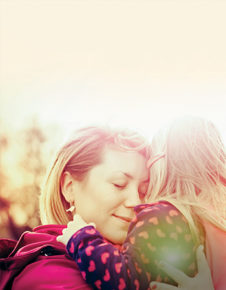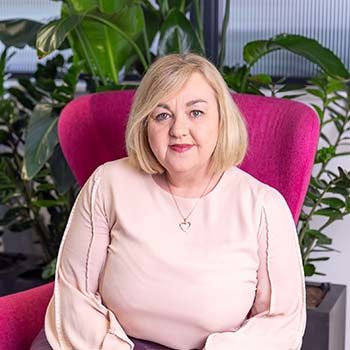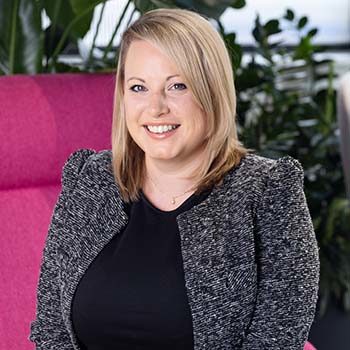B P Collins spoke to Sabrina Singh, an End of Life Doula based in West London. The biggest doula movement is currently in the US, followed by Canada and Australia, but there is a growing recognition of its importance in the UK. With an ageing population and Covid 19 both bringing death to the forefront of people’s minds, Sabrina believes we need to rethink how we take care of our loved ones towards the end of their lives and be more comfortable about discussing and preparing for the inevitable.
What is an end of life doula?
End of Life Doulas provide the structure and ability to approach death holistically, helping support choices at end of life, and comforting the fear associated with death and impermanence.
Accredited Doulas alleviate the many pressures on the health care system, answering questions and acting as a guide, offering practical and emotional support to the dying and their loved ones.
We hold space for the dying process to unfold naturally and support the dying and their community at death. A Doula can offer a calm presence to those approaching end of life, alleviating anxiety and offering a sense of solace.
What drew you to this role?
My background is in fashion, so completely unrelated to what I’m doing now.
But like many others who turn 40, I started to think about my life, service to others and my legacy, so I started to explore other types of work. If anyone had asked me what I wanted to do if I wasn’t working in fashion, I would have said nursing, which although I was drawn to, there were some aspects that didn’t seem like the best fit.
Then a friend of mine who is a birth doula told me about death doulas, but I’d never heard of them. Time stopped, I did my research and subsequently felt a calling to the role. I think anyone who works in death care says it must be a calling. Now I know it was always something I was meant to do.
What are the origins of End of Life Doulas?
I think as long as people have been dying, there have been doulas. I think we have just attached a title more recently. Traditionally, the role fell to women in the family or local community to look after the dying, but as medical advances came into play, the role of taking care of the dying fell to hospitals. So, we have lost that art of supporting someone who is dying and people need to rethink how they take care of their loved ones during this time. And now, through doulas, there is a whole movement of bringing that back and providing a more holistic outlook.
Why have we lost this art of looking after those who are dying?
As medical advances came into play, we started to focus on prolonging people’s lives, which is obviously very important. But we need to strike a fine balance between extending someone’s life and letting the dying process happen naturally. As a society we are so fearful of death and dying that we don’t discuss it and this needs to change. The more that we can accept what is going to happen to us, the easier it will be to make informed choices about how we want our lives and death to go.
Where do you work mostly at the moment?
My work is virtual and global, including the UK, Canada, US, South Africa and Japan. I also hope to build more community-based work closer to home once guidelines permit again. I have one client – a granddaughter – who is giving her dying grandmother and her aunt, who is the primary caregiver, the gift of a doula as she wanted to help in a meaningful way.
The people who reach out to me are generally a family member of someone who is dying. People can feel helpless when faced with a loved one dying and are always trying to think about how best to support them during this difficult time, and a doula is one way of doing that.
Is there a shift in attitudes towards dying?
Definitely. Covid has brought death to the forefront of people’s minds and as a result we are future planning, which is a good thing. We prepare for everything in life – the birth of a baby, going to school and university and weddings. Death is the one thing that’s guaranteed in life, so why are we not more prepared for it?
Why aren’t we preparing for death?
It comes from fear, as there is this great myth that if we talk about it, it will happen sooner. There are many cultures that do talk about death and dying in a positive way such as Eastern cultures where many people follow Buddhism or Hinduism – where there is an encouragement to appreciate the present moment, a belief in life after death and that their time on earth isn’t finite. Whereas in Western Europe many people believe that once you die that’s it.
I’m a huge believer in talking about death in school in an age appropriate and sensitive way. If we have sex ed, why not death ed? I am currently working on a programme with other doulas about taking the conversations into schools. It’s important because children are naturally open and curious and if they can access information about death, without the fears that adults typically attach to it, they would be more inclined to view it in a heathly way.
What was your first doula job like?
My first experience was with my grandmother, accompanying her through her palliative trajectory. It was a beautiful experience. But what I found fascinating was that no one told her she was dying. It felt completely alien to me as everybody has the right to understand the truth of their situation and be able to have the conversations they need to have before they die and feel peace about where they are. But she was cheated out of that.
My father also died this Summer, so I have a lot of empathy for others going through the death of a loved one in the midst of the pandemic. I’ve experienced all the same feelings they would have done. I know what it feels like to be separated from loved ones and not being allowed to visit as he was in a care home at the time. It is a very difficult time for people at the moment.
What advice would you give to people whose loved ones are dying?
Be present with the person who is dying. There is no greater gift than showing them that you are there for them.
Take a moment to breathe. Remember that your loved one is still alive and treasure every moment you have with them.
Take care of yourself. You can’t pour from an empty cup. Doulas can provide relief and provide support for the whole family and caregivers as it can be exhausting.
Ensure that you’ve said all the things that need to be said. Consider what you need to forgive and ask forgiveness for. And let the person who is dying know how much they are loved.
Being a doula must be emotionally draining – how do you look after yourself?
Self care is very important. I go on walks as I get a great sense of peace walking in nature. I also have a lovely group of people around me and there is a great doula support network around the world.
What have you learned about death?
People say isn’t is depressing being a doula. But I think it is the opposite. I find it so life affirming. It makes me appreciate the moment and the little things. I think I have always been good about telling people that I love them, saying what I feel in the moment and not letting these moments pass by. Life is precious so I don’t take those meaningful moments for granted. Working in death care makes me appreciate how lucky we are to have life.
For further information and advice, contact our private client team on on 01753 888895 or email enquiries@bpcollins.co.uk.

















